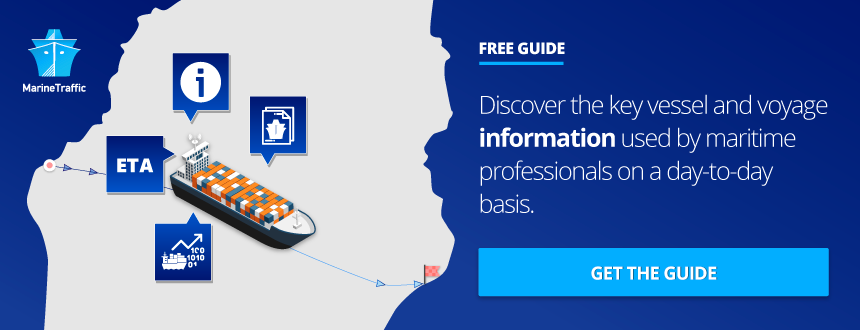Here we take a look at some of the technology trends that we are likely to hear a lot more about in the year ahead.
Artificial Intelligence (AI)
Early signs suggest that developments in Artificial Intelligence (AI) will begin to truly impact the maritime sector in 2019. One area where we are likely to see this is in port call optimisation. Last week the Port of Rotterdam, with whom MarineTraffic work closely through the Port Call Optimisation Task Force, released its findings of a recent pilot of its online communication platform, Pronto. Pronto is using AI to predict vessel arrival times in port earlier and with increased precision. The recent pilot found that the number of Maersk vessels experiencing delay at APM Terminals at Maasvlakte II as a consequence of bunker activities reduced significantly when using the platform.
Another area we are likely to see the benefits of the developments in AI is through automatic docking for cruise, ferry and offshore support vessels via voyage assistance computers. Late last year Wärtsila successfully completed a further round of test procedures of its automated dock-to-dock solution on the ferry Folgefonn. The vessel made three port calls and automatically docked at its final destination, a first for a vessel of this size.
The uptake in AI-assisted technologies such as Pronto and Wärtsilä’s autodocking solution is likely to increase in the year ahead as the accompanying economic and environmental benefits become more apparent.
Cyber Security
While the more imminent 1 January deadline for Sulphur Cap 2020 will be occupying industry attention this year, for many it will be equally pertinent to begin preparing for the 1 January 2021 enforcement of Resolution MSC.428(98) – Maritime Cyber Risk Management in Safety Management Systems. The resolution encourages administrations to ensure that cyber risks are appropriately addressed in existing safety management systems as defined in the International Safety Management (ISM) Code.
In light of this regulation and the increased scrutiny on ensuring businesses in maritime are taking cyber security seriously, industry associations including BIMCO, INTERTANKO, INTERCARGO, and OCIMF published the third edition of Guidelines on Cyber Security onboard Ships In December. The report was aimed at guiding companies when preparing their own approaches to cyber risk management to assist them in their preparations.
The 2nd Cyber Security for Maritime Conference Summit, which took place in Singapore last month, in addition to the European Maritime Cyber Risk Management Summit, scheduled for this summer in London, shows the global momentum building towards addressing cybersecurity concerns more effectively in the year ahead.
Autonomous vessels
2019 will be a big year for Maritime Autonomous Surface Ships (MASS). The IMO’s Marine Safety Committee (MSC) began assessing the case for autonomous vessels at its 99th session in May last year, meeting again in December to approve the framework and methodology for the regulatory scoping exercise, following testing of the methodology by a correspondence group. The MSC is set to meet again this year to review the findings of the tasks set at MSC 100 with view to proposing new amendments.
While these regulatory details are being formed, Kongsberg, who is responsible for the development and delivery of the Yara Birkeland, the first zero emission autonomous ship, will be testing the vessels autonomous capabilities before delivery to Vard at beginning of next year. Operation is planned to start in the first quarter of 2020, with the vessel shipping products from Yara’s Porsgrunn production plant to Brevik and Larvik in Norway. Yara Birkeland will initially be manned, with view to going fully autonomous by 2022. Class societies such as Lloyd’s Register and DNV GL have already produced guidance for autonomous vessel design and operation; the latter’s was trialled on the Kongsberg vessel last year.
The Yara Birkeland is by no means the only autonomous vessel project. Earlier this month, technology for remotely controlling workboat and defence vessels was demonstrated in the United Arab Emirates by Al Marakeb Boat Manufacturing Co. While Svitzer and Rolls-Royce have held a similar exercise with tugs in collaboration with Lloyd’s Register. It would be no surprise should this technology become more prominent in the year ahead.

